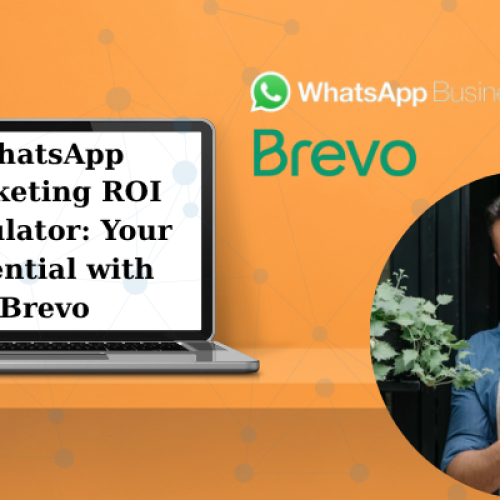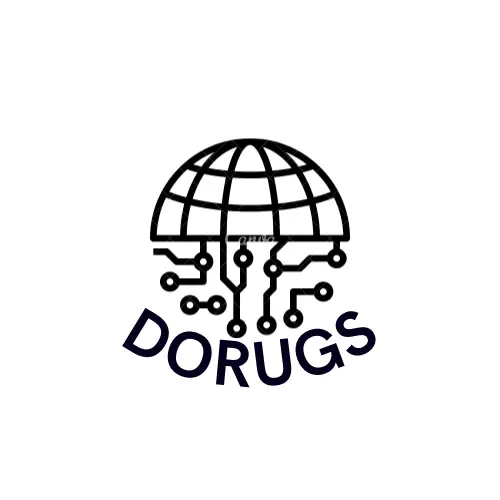The email marketing landscape shifted dramatically when Apple introduced Mail Privacy Protection in iOS 15, and the changes have only accelerated since then. By 2025, privacy isn’t just a compliance checkbox—it’s become a fundamental business strategy that determines whether your emails reach engaged audiences or disappear into digital obscurity.
But here’s what many marketers are missing: the platforms that built privacy protection into their foundation from day one aren’t just complying with regulations—they’re thriving because of them. While others scramble to retrofit privacy features, forward-thinking platforms like Brevo have turned privacy compliance into a competitive advantage.
If you’re still treating privacy as an obstacle rather than an opportunity, you’re missing one of the biggest strategic shifts in email marketing history.

Table of Contents
ToggleThe Privacy Revolution: More Than Just iOS Changes
Apple’s Mail Privacy Protection was just the beginning. Since its introduction, we’ve seen a cascade of privacy-focused updates that have fundamentally changed how email marketing works:
iOS Mail Privacy Evolution Timeline
iOS 15 (2021): Introduced basic tracking protection iOS 16 (2022): Enhanced privacy controls for third-party content iOS 17 (2023): Advanced link tracking protection iOS 18 (2024): Comprehensive sender authentication requirements iOS 19 (2025): Predictive privacy controls and AI-powered spam detection
Each update has made traditional email tracking methods less reliable while rewarding marketers who prioritize subscriber trust and transparent communication.
The Broader Privacy Landscape
iOS changes are part of a global shift toward data protection:
- GDPR enforcement has intensified across Europe with significant penalties
- California Privacy Rights Act (CPRA) extends privacy protections nationwide
- Canada’s Bill C-27 introduces comprehensive digital privacy legislation
- Browser-based tracking protection continues expanding across all major platforms
What iOS Privacy Protection Actually Does
Understanding the technical implications helps marketers adapt their strategies effectively:
Traditional Email Tracking Limitations
Open Rate Accuracy: iOS Mail Privacy Protection pre-loads email content, making traditional open tracking unreliable. This affects approximately 35-40% of email opens globally, with higher percentages in affluent demographics.
Link Click Attribution: Enhanced link protection makes it difficult to track which specific links subscribers click, complicating conversion attribution and user journey analysis.
Location and Time Data: Geographic and timestamp data becomes less accurate as privacy protection masks subscriber locations and normalizes email opening times.
The Real Impact on Email Metrics
| Metric | Pre-iOS Changes | Post-iOS Implementation | Marketing Impact |
|---|---|---|---|
| Open Rate Accuracy | 85-95% reliable | 60-70% reliable | Strategy shift needed |
| Click Attribution | Direct tracking | Aggregated data | Focus on outcomes |
| Segmentation Precision | Behavior-based | Intent-based | Deeper content strategy |
| A/B Testing | Traditional metrics | Engagement depth | Quality over quantity |
The European Advantage: Why GDPR-First Platforms Lead
While many email platforms treated GDPR as a compliance burden, European companies like Brevo built their entire architecture around privacy-by-design principles. This fundamental difference becomes crucial as privacy regulations tighten globally.
Built-in Privacy vs. Retrofitted Compliance
GDPR-Native Platforms (Like Brevo):
- Privacy-by-design architecture from initial development
- EU-based data centers ensuring data sovereignty
- Transparent consent management integrated into all workflows
- Automatic compliance updates as regulations evolve
Retrofitted Platforms:
- Added privacy features to existing systems
- Complex compliance configurations requiring ongoing management
- Mixed data handling across different geographic regions
- Manual updates needed for regulatory changes

Data Sovereignty and Trust Building
Brevo’s European foundation provides tangible advantages in the privacy-first era:
Technical Benefits:
- EU server infrastructure keeps data within GDPR jurisdiction
- Unified privacy standards across all platform features
- Automatic encryption and secure data handling protocols
- Transparent audit trails for all data processing activities
Business Advantages:
- Enhanced subscriber trust through visible privacy commitments
- Simplified compliance management with built-in protections
- Competitive differentiation in privacy-conscious markets
- Future-proofing as regulations continue evolving
Adapting Email Strategy for the Privacy-First Era
Successful privacy-first email marketing requires strategic shifts beyond simple compliance:
From Tracking to Trust Building
Traditional Approach:
- Heavy reliance on pixel tracking and behavioral data
- Focus on maximizing data collection at every touchpoint
- Complex attribution models dependent on granular tracking
- Aggressive retargeting based on browsing behavior
Privacy-First Approach:
- Value-driven content that encourages voluntary engagement
- Transparent data requests with clear benefit explanations
- First-party data focus through surveys and preference centers
- Content quality metrics rather than just engagement tracking
Rethinking Email Analytics
New Success Metrics to Prioritize:
Engagement Depth Over Surface Metrics: Instead of obsessing over open rates, focus on reply rates, survey responses, and content interaction time within emails.
Conversion Quality Over Quantity: Track revenue per subscriber and customer lifetime value rather than just click-through rates and immediate conversions.
List Health and Retention: Monitor subscription longevity, re-engagement rates, and voluntary preference updates as indicators of genuine subscriber value.
Brand Trust Indicators: Measure direct website traffic, social media engagement, and customer service interactions that correlate with email campaigns.

Brevo’s Privacy-First Implementation Strategy
Brevo’s approach to privacy-first email marketing demonstrates how compliance can become competitive advantage:
Consent Management Excellence
Transparent Opt-in Processes: Brevo’s forms clearly explain what subscribers can expect, how their data will be used, and provide granular consent options for different types of communications.
Dynamic Preference Centers: Subscribers can easily adjust their preferences without unsubscribing entirely, leading to better engagement and reduced churn.
Automatic Compliance Tracking: The platform automatically documents consent history and provides audit trails for all subscriber interactions.
Advanced Segmentation Without Invasive Tracking
Intent-Based Segmentation: Rather than relying on pixel tracking, Brevo enables segmentation based on stated preferences, survey responses, and voluntary engagement indicators.
Behavioral Pattern Recognition: The platform identifies engagement patterns without invasive tracking, using aggregated data to improve targeting while respecting individual privacy.
Predictive Modeling: AI capabilities help predict subscriber preferences and optimal content timing using privacy-compliant data analysis.
Privacy-Compliant Personalization
First-Party Data Optimization: Brevo excels at creating personalized experiences using data that subscribers willingly provide rather than secretly collected information.
Dynamic Content Based on Preferences: Email content adapts based on explicitly stated preferences rather than inferred behavior from tracking pixels.
Respectful Communication Frequency: AI-powered send time optimization respects subscriber preferences and engagement patterns without invasive monitoring.

Compliance Framework for Global Privacy Regulations
Different regions require different approaches to privacy compliance, but platforms with strong foundational privacy protections can adapt more easily:
GDPR Compliance (European Union)
Core Requirements:
- Explicit consent for all data processing activities
- Right to access personal data and processing information
- Right to rectification of incorrect information
- Right to erasure (right to be forgotten)
- Data portability allowing subscribers to transfer their information
Brevo’s GDPR Advantages:
- Native EU infrastructure ensures automatic compliance
- Built-in consent management handles complex requirements seamlessly
- Automatic data retention policies prevent compliance violations
- Transparent reporting provides complete audit trails
CCPA/CPRA Compliance (California/United States)
Key Requirements:
- Right to know what personal information is collected
- Right to delete personal information
- Right to opt-out of sale of personal information
- Non-discrimination for exercising privacy rights
Implementation Benefits: Platforms with strong European privacy foundations typically exceed CCPA requirements, providing additional protection and trust-building opportunities.
Emerging Global Standards
Canada’s Bill C-27: Similar to GDPR but with uniquely Canadian requirements for algorithmic transparency and automated decision-making disclosure.
Singapore’s Personal Data Protection Act: Comprehensive privacy legislation that requires explicit consent and provides extensive individual rights.
Brazil’s Lei Geral de Proteção de Dados (LGPD): GDPR-inspired legislation with specific requirements for Latin American markets.

Building Trust Through Transparency
Privacy-first email marketing is ultimately about building deeper, more sustainable relationships with subscribers:
Communication Transparency Strategies
Clear Value Propositions: Every email should clearly communicate the value subscribers receive in exchange for their attention and data.
Regular Preference Updates: Proactively ask subscribers about their preferences rather than waiting for them to unsubscribe.
Educational Content: Help subscribers understand how email marketing works and how their privacy is protected.
Honest Frequency Communication: Be upfront about how often you’ll email and stick to those commitments.
Trust-Building Email Content
Behind-the-Scenes Content: Share how your company operates, makes decisions, and treats customer data.
Customer-Centric Policies: Highlight policies and practices that benefit subscribers rather than just the business.
Two-Way Communication: Encourage replies, feedback, and genuine dialogue rather than one-way broadcasting.
Value-First Approach: Lead with helpful content rather than promotional messages in most communications.
Measuring Success in the Privacy-First Era
Traditional email metrics don’t tell the complete story when privacy protection is active. Here’s how to evaluate performance effectively:
Enhanced Analytics Approaches
Cohort Analysis: Track subscriber groups over time to understand long-term engagement patterns and lifetime value.
Attribution Modeling: Use statistical modeling to estimate the impact of email campaigns on overall business metrics.
Cross-Channel Integration: Connect email performance with website analytics, social media engagement, and customer service interactions.
Survey and Feedback Integration: Regularly collect direct feedback to understand subscriber satisfaction and content effectiveness.
Key Performance Indicators for Privacy-First Marketing
| Traditional KPI | Privacy-First Alternative | Why It Matters |
|---|---|---|
| Open Rate | Survey Response Rate | Indicates genuine engagement |
| Click-Through Rate | Email Reply Rate | Shows content relevance |
| Conversion Rate | Customer Lifetime Value | Measures long-term success |
| List Growth Rate | Engagement Retention Rate | Quality over quantity focus |
Platform Selection for Privacy-First Success
Not all email platforms are equally prepared for the privacy-first era. When evaluating options, consider these crucial factors:
Technical Infrastructure Assessment
Data Processing Location: Where is your subscriber data actually processed and stored? EU-based processing provides stronger privacy protections and easier compliance management.
Privacy Feature Integration: Are privacy tools built into the core platform or added as afterthoughts? Native integration typically provides better functionality and reliability.
Compliance Automation: How much manual work is required to maintain compliance as regulations change? Automated compliance reduces risk and administrative burden.
Transparency and Auditability: Can you easily demonstrate compliance to regulators or subscribers? Clear audit trails are essential for trust building and regulatory compliance.
Future-Proofing Considerations
Regulatory Adaptation Speed: How quickly does the platform adapt to new privacy regulations? Faster adaptation reduces compliance risk and competitive disadvantage.
Privacy Innovation: Is the platform developing new privacy-enhancing features proactively? Innovation in privacy can become competitive advantage.
Global Compliance Support: Does the platform support compliance across multiple jurisdictions? Global businesses need comprehensive privacy support.
Educational Resources: Does the platform provide guidance on privacy best practices? Ongoing education helps marketers adapt to changing requirements.

The Competitive Advantage of Privacy Leadership
Businesses that embrace privacy-first marketing often discover unexpected competitive advantages:
Enhanced Customer Relationships
Deeper Trust: Transparent privacy practices build stronger customer relationships and increased brand loyalty.
Higher Quality Engagement: Subscribers who choose to engage despite privacy protections are typically more valuable customers.
Reduced Customer Acquisition Costs: Trust-based marketing often generates more referrals and word-of-mouth promotion.
Improved Customer Retention: Privacy-respecting businesses often see lower churn rates and higher customer lifetime values.
Operational Benefits
Simplified Compliance Management: Privacy-first platforms reduce the complexity and cost of regulatory compliance.
Better Data Quality: Consensual data collection typically provides more accurate and useful customer insights.
Reduced Security Risk: Privacy-by-design architectures often have stronger security protections against data breaches.
Future Regulatory Readiness: Early privacy adoption positions businesses ahead of upcoming regulatory requirements.
Making the Transition: Implementation Roadmap
If your current email platform lacks robust privacy protections, transitioning requires careful planning:
Phase 1: Privacy Audit and Assessment (Week 1-2)
Current State Analysis:
- Review existing data collection practices and consent mechanisms
- Assess compliance gaps with current and upcoming regulations
- Evaluate subscriber trust indicators and feedback
- Audit data storage and processing locations
Platform Evaluation:
- Compare privacy features across potential email platforms
- Assess integration complexity with existing marketing tools
- Calculate compliance costs for different platform options
- Test privacy-friendly features using trial accounts
Phase 2: Strategy Development (Week 3-4)
Privacy-First Content Strategy:
- Redesign email content to emphasize value and transparency
- Develop consent management workflows and communications
- Create privacy-compliant lead magnets and opt-in incentives
- Plan measurement approaches for privacy-protected analytics
Technical Implementation Planning:
- Map data migration requirements and timelines
- Plan integration updates for privacy-compliant tracking
- Design new analytics dashboards and reporting processes
- Prepare team training on privacy-first marketing approaches
Phase 3: Platform Migration and Testing (Week 5-8)
Technical Migration:
- Transfer subscriber data using privacy-compliant processes
- Implement new tracking and analytics configurations
- Set up compliance monitoring and reporting systems
- Test all integrations for privacy compatibility
Content and Process Updates:
- Launch new consent management processes and communications
- Implement privacy-first email templates and workflows
- Begin collecting first-party data through surveys and preference centers
- Start measuring success using privacy-compliant metrics
Phase 4: Optimization and Scaling (Week 9-12)
Performance Analysis:
- Compare privacy-first results with previous performance metrics
- Identify optimization opportunities in consent and engagement
- Refine content strategy based on privacy-compliant data
- Document best practices for ongoing team reference
Advanced Implementation:
- Expand privacy-first approaches to additional marketing channels
- Develop advanced segmentation using first-party data
- Create automated compliance monitoring and reporting
- Build long-term privacy strategy for regulatory changes
The Future of Privacy-First Marketing
Privacy protection will only become more important as regulations tighten and consumer awareness increases. The platforms and strategies that embrace this shift today will be best positioned for long-term success.
Emerging Privacy Trends
AI-Powered Privacy Protection: Future email platforms will likely use artificial intelligence to automatically optimize privacy protection while maintaining marketing effectiveness.
Blockchain-Based Consent Management: Distributed ledger technology may provide more transparent and secure consent tracking and management.
Zero-Knowledge Marketing: Advanced cryptographic techniques could enable personalized marketing without exposing individual subscriber data.
Regulatory Harmonization: Global privacy regulations are likely to converge on similar standards, simplifying compliance for international businesses.

Making the Smart Choice for Privacy-First Marketing
The transition to privacy-first email marketing isn’t just about compliance—it’s about building more sustainable, profitable customer relationships. Platforms that were built with privacy as a foundation, like Brevo, offer distinct advantages in this new landscape.
Key Advantages of Privacy-Native Platforms:
- Reduced compliance complexity through built-in privacy protections
- Enhanced subscriber trust through transparent data handling
- Future-proofing against evolving privacy regulations
- Competitive differentiation in privacy-conscious markets
Consider Your Current Situation: If your existing platform requires complex workarounds for privacy compliance, or if you’re spending significant time managing privacy-related configurations, exploring alternatives makes strategic sense.
Privacy-first marketing isn’t about losing marketing effectiveness—it’s about building more sustainable, trust-based relationships with your audience. The platforms that make this transition seamless and effective are positioning their users for long-term competitive advantage.
Ready to experience privacy-first marketing in action? Explore Brevo’s privacy-native features with a free account and discover how GDPR-compliant infrastructure can enhance rather than limit your marketing effectiveness.




